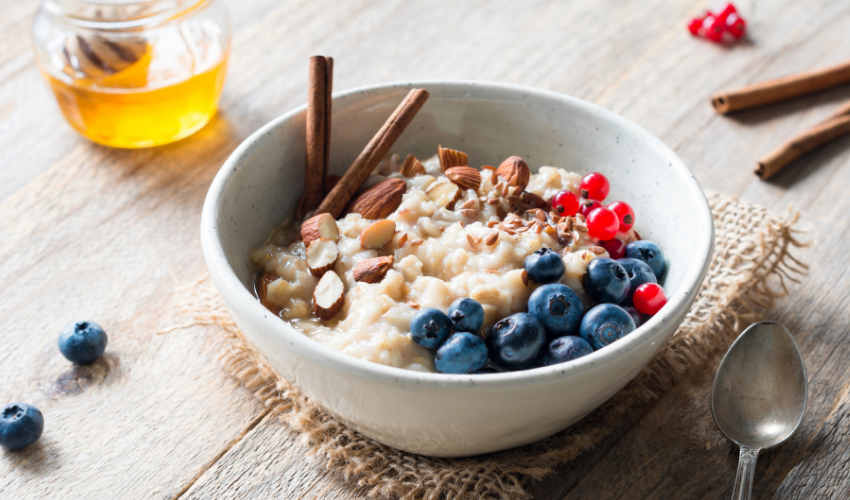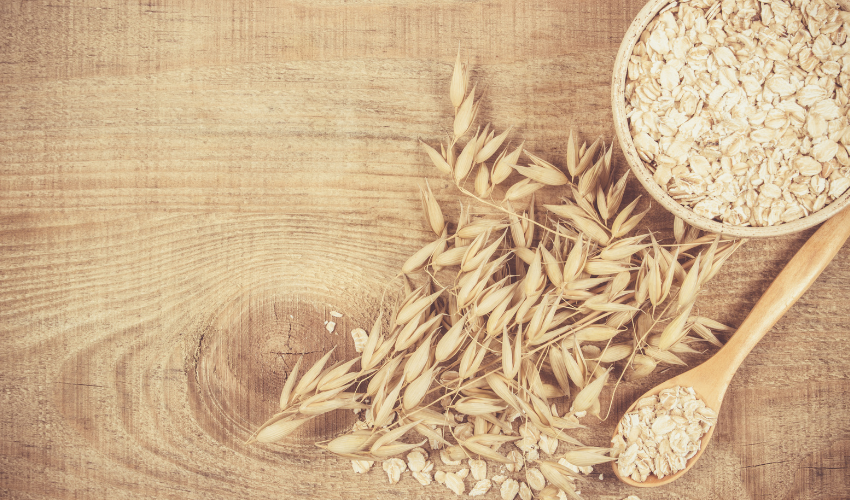Oatmeal is a popular breakfast food that is enjoyed by people all over the world. It is a type of porridge made from rolled, ground, or steel-cut oats, and it is known for its high nutritional value. Oats are an excellent source of fiber, vitamins, and minerals that can benefit your health in numerous ways. In this article, we will discuss the oatmeal health benefits that make it a valuable addition to your diet.
Top Oatmeal Health Benefits

Rich in Nutrients
Oatmeal is packed with essential nutrients that can help keep your body healthy and functioning at its best. Some of the key nutrients found in oatmeal include:
- Fiber: Oatmeal is an excellent source of both soluble and insoluble fiber, which can help promote healthy digestion and keep you feeling full and satisfied.
- Protein: Oatmeal contains all nine essential amino acids, making it a complete protein source.
- Vitamins and minerals: Oatmeal is a good source of several essential vitamins and minerals, including vitamin B1, magnesium, and phosphorus.
Can Lower Cholesterol
One of the most well-known health benefits of oatmeal is its ability to lower cholesterol levels. Oatmeal contains a type of soluble fiber called beta-glucan, which has been shown to help reduce LDL (bad) cholesterol levels in the blood. By incorporating oatmeal into your diet, you can help lower your risk of heart disease and stroke.
Promotes Weight Loss
Oatmeal is a great food to incorporate into your weight loss diet plan. Its high fiber content can help keep you feeling full for longer periods, which can help prevent overeating and snacking between meals. Oatmeal is also low in calories and can be combined with healthy toppings such as fruits, nuts, and seeds to create a nutritious and satisfying breakfast.
Reduces the Risk of Heart Disease
Oatmeal is rich in antioxidants, which can help to prevent the oxidation of LDL cholesterol. Oxidized LDL cholesterol can cause inflammation in the arteries and increase the risk of heart disease. Eating oatmeal regularly can reduce the risk of heart disease and stroke.
Controls Blood Sugar Levels
Oatmeal has a low glycemic index, which means that it releases glucose slowly into the bloodstream. This can help to prevent blood sugar spikes and crashes, making oatmeal a good choice for people with diabetes. Eating oatmeal regularly can improve insulin sensitivity and reduce the risk of developing type 2 diabetes. Oatmeal can also help regulate blood sugar levels, making it an ideal breakfast option for those with diabetes or those looking to maintain stable blood sugar levels throughout the day. The soluble fiber in oatmeal slows down the absorption of glucose into the bloodstream, which can help prevent blood sugar spikes and crashes.
Boosts Digestion
Oatmeal is rich in fiber, which can promote healthy digestion and regular bowel movements. The soluble fiber in oatmeal can also help to reduce constipation and bloating. Eating oatmeal regularly can help to maintain a healthy gut and prevent digestive problems.
- Oatmeal is a nutritious breakfast food that can provide numerous health benefits.
- Oatmeal contains beta-glucan, a type of soluble fiber that can reduce cholesterol levels.
- Oatmeal can promote weight loss by reducing hunger and increasing feelings of fullness.
- Oatmeal is rich in fiber, which can promote healthy digestion and prevent digestive problems.
- Oatmeal is a good source of antioxidants that can reduce the risk of heart disease.
- Oatmeal has a low glycemic index, which can help to control blood sugar levels.
FAQs
Is oatmeal good for weight loss?
Yes, oatmeal is a filling breakfast food that can promote weight loss by reducing hunger and increasing feelings of fullness.
How much oatmeal should I eat per day?
Eating one to two servings of oatmeal per day (one serving is about ½ cup of dry oats) can provide you with the oatmeal health benefits you need to maintain a healthy diet.
Is instant oatmeal as healthy as regular oatmeal?
Instant oatmeal can be just as healthy as regular oatmeal, but it often contains added sugar and preservatives. To get the most benefits, choose plain, unflavored instant oatmeal or regular rolled oats.
Can oatmeal reduce the risk of cancer?
Some studies suggest that the antioxidants in oatmeal may help to reduce the risk of certain types of cancer, such as colon, breast, and prostate cancer. However, more research is needed to confirm these findings.
Can oatmeal be eaten by people with gluten intolerance?
While oats themselves do not contain gluten, they are often processed in facilities that also process wheat, barley, and rye, which can lead to cross-contamination. To be safe, people with gluten intolerance should choose gluten-free oats or avoid oatmeal altogether.
Conclusion
In conclusion, oatmeal is a nutritious breakfast food that can provide numerous health benefits. From reducing cholesterol levels to promoting weight loss, oatmeal has something to offer everyone. By incorporating oatmeal into your diet, you can improve your overall well-being and maintain a healthy lifestyle. So, start your day with a bowl of oatmeal and enjoy the oatmeal health benefits it has to offer.























